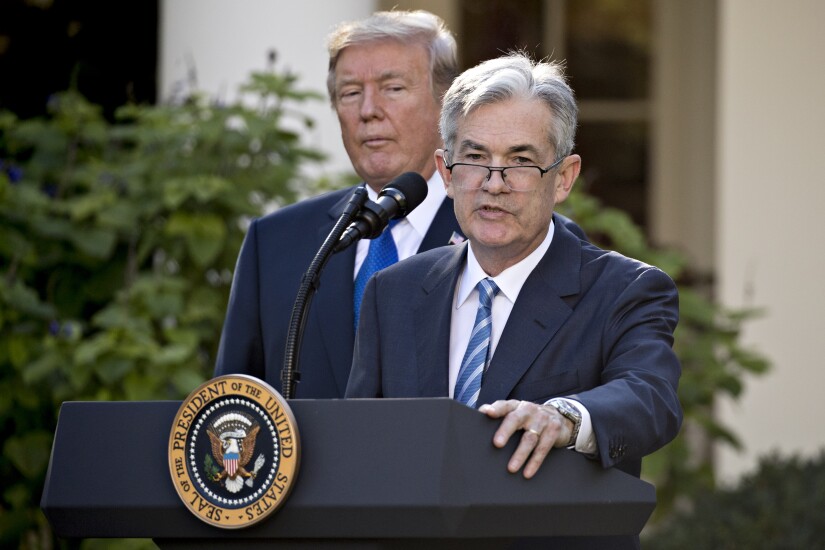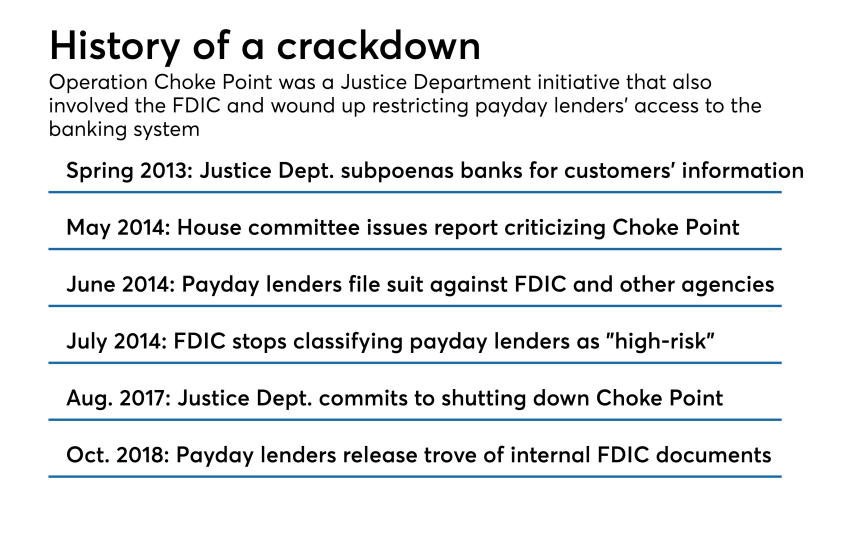Readers sound off on the CFPB's name change, whether the Post Office should be allowed to engage in banking services and the FDIC's call to revamp the de novo process.

[From former FDIC Chairman Bill Isaac] "The 12th Chairman of the FDIC wholeheartedly supports the 21st Chairman in her efforts to streamline the FDIC's applications processes and to encourage the formation of new banks throughout the country. Community banks are essential to economic growth and we need more of them, not fewer."
Related:

"The article failed to mention that the report says the Postal Service should raise prices for package deliveries and that package deliveries 'have not been priced with profitability in mind.' No wonder they've had 12 straight years of losses. If the Postal Service offered loans, would they be priced 'with profitability in mind?'"
Related:

"Another 'creative' way for Wall Street to create a series of dominos that can tumble and take a disproportionate portion of the economy along - lots of potential for collateral damage as the effects of a downturn are magnified by the leverage and second and third level businesses (the ones that bank on 'Main Street') are impacted by the breakdown of upstream businesses."
Related:

"The biggest risk to the U.S. economy is, very simply, having someone in charge with an extreme case of impulse control failure. The markets value stability. 600 point daily swings in the DOW tell you everything you need to know about that."
Related:

"Considering the source (an internal study by bureaucrats trying to justify their jobs) the $300 million is questionable. But, if it actually does cost $300 million to perform a simple name change then one can only imagine how much this bloated agency is spending on its other bureaucratic activities. It is time to stick a fork into the BCFP and call it done."
Related:

"Only Washington entrenched bureaucrats could figure out how to make a name change potentially cost up to $300 million. No wonder everyone wants DC vendor contracts."
Related:

"Zelle and the Clearing House RTP system are just real-time versions of ACH payments, with no new material security enhancements. They just accelerate the fraud ecosystem."
Related:

"Regulator/examiner personal ideology creeps into more than what is described here. It also shows up in CRA exams, in which examiners often dismiss bank efforts because all the bank did was 'write a check' without analyzing the impact of the $ pumped into the community, e.g., # affordable housing units provided or # LMI people benefitted. This is odd when you think about the fact that banks don't get credit for pounding nails for Habitat for Humanity and working up a sweat."
Related:

"The author's observations and suggestions are spot on and wise. I am therefore not optimistic that the politicians and their private sector cohorts who use CRA to extort banks will allow anything like he suggests to happen."
Related:

"Nothing new here, since CATO has been advocating CRA’s repeal since the 1990s. What’s new is a Comptroller and ANPR suggesting radical CRA reforms such as the broad expansion of CRA eligible activities and eliminating the Assessment Area concept. For example, if a bank gets CRA credit everywhere for every loan, investment and service supporting community or economic development, which could be almost anything, then the law will have been effectively repealed. That is, CRA repeal via CRA reform."
Related:





